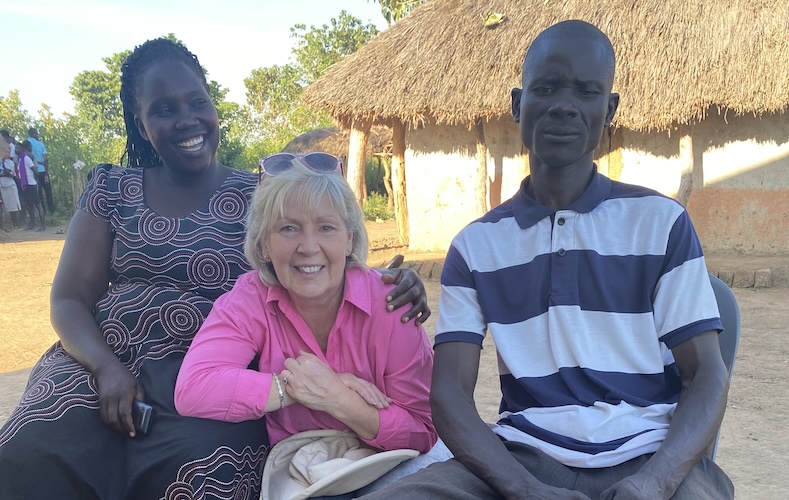
On a recent visit to a village in North Teso, where TDT had provided assistance to the community, our team met survivors of the Lord’s Resistance Army, an cultic insurgent army which in the early 2000’s terrorised large swathes of northern Uganda, including Teso. This is the story of two of them who managed to escape from the LRA after a some years under their power.

At the age of 9, Grace was abducted by the LRA on 15th June 2003, a date she remembers well. This is what happened, in her own words.
‘I am one of 10 children and when we heard of the LRA approaching we were taken to stay with an Aunty in a nearby village for safety. It was a Monday and I was busy grinding cassava when we were told some visitors had reached our village. In reality it was LRA soldiers and at 8pm we heard gun shots. The soldiers attacked our homes.
I escaped to Obalanga and for two weeks I tried to hide. They were killing people and taking the children. I was eventually captured with four others from my village.
For over a year we were moved from place to place. We were roped together round our waists and made to carry bags of sugar and salt which the LRA had raided from the shops.
Eventually we reached Gulu where we stayed for over 18 months.It was bad. Children were tortured and girls like me were shared out around the soldiers. Some had children.
Each day we were sent to gather firewood, and then four of us realised we could trick the soldiers into believing we would return at night. For several days we did return, then one day we ran away. It took us a week to reach Lira and from there we made it to the Soroti Barracks and safety.’
Of the four children abducted from Grace’s family, only three returned to their village. Her sister has not been heard of since. Their father had been killed by the LRA, and once back in her village, Grace suffered bullying at school because of what she had been through.
An organisation offering help for the traumatised children provided some catering training for Grace, but Covid 19 meant they pulled out halfway through, leaving her dreams of starting a catering business in shreds. Like many others, she has not received any counselling, and says many of the young adults now react aggressively as a direct result.
A shoulder wound inflicted by a soldier’s bayonet makes it painful for her to work long hours in the field, and she has four of her own children to support after her husband left them.
Grace is a beautiful young woman and despite all she has suffered, is hopeful about her future.

James was 10 when the LRA reached his village on 20th June 2003. This is what happened to him, in his own words.
‘When we heard the gun shots, I ran into the fields with another boy who was around 18 years old. But the soldiers were ahead of us so we were taken. They roped us around the waist so we couldn’t escape, and I as made to carry a very heavy box of bullets. It was hard, but if you said you were tired, the soldiers would beat you to death.
The beatings continued as we moved to Soroti and then on to Kaberamaido. It was there that they took all the girls from the Secondary School – I saw what happened. We went back to Soroti as the LRA wanted to attack the government army barracks, but for two weeks they kept moving us on first to Obolanga, then to Lira and Omoro, and eventually to Padera in South Sudan.
When we were nearing Soroti the second time, I heard a government gun ship overhead and we were told by the LRA to hide in the bush. The army was looking for the rebels and shooting into the fields. I managed to wave to one of the gunmen so he didn’t shoot me. Instead, I saw a chance to slip away in the undergrowth.’
James was quite near his village when he escaped, but like hundreds of others found refuge in one of the many refugee camps in Amuria. Two years later in 2006 he returned to his village to find that his father had been killed and the fabric of the community decimated. James has not been educated, and although he tries to earn a living from the land to support a wife and two children, the beatings he suffered at the hands of the LRA have seriously weakened him.





